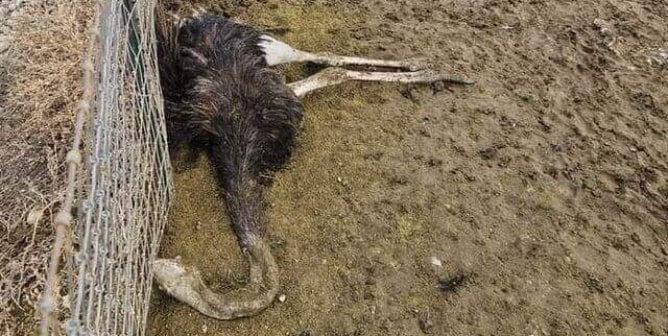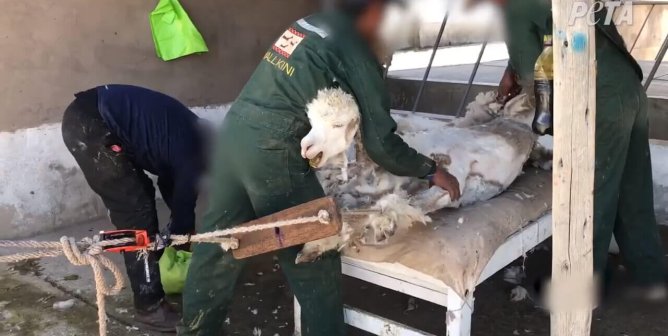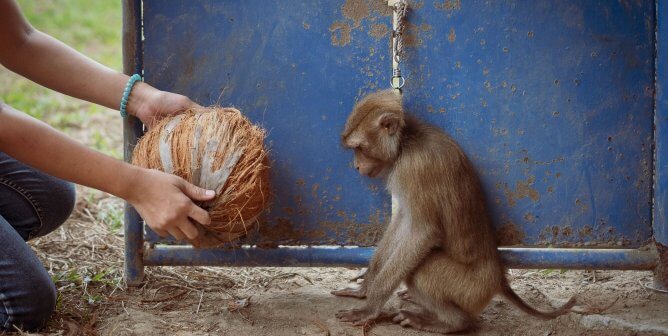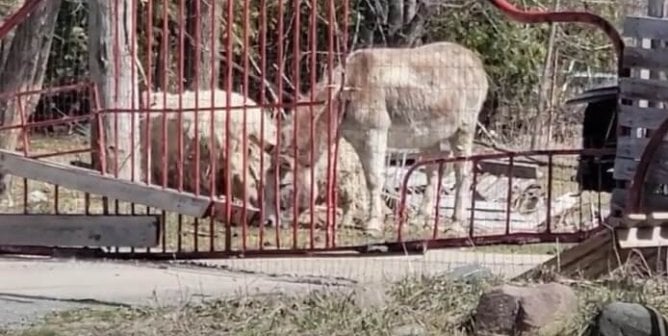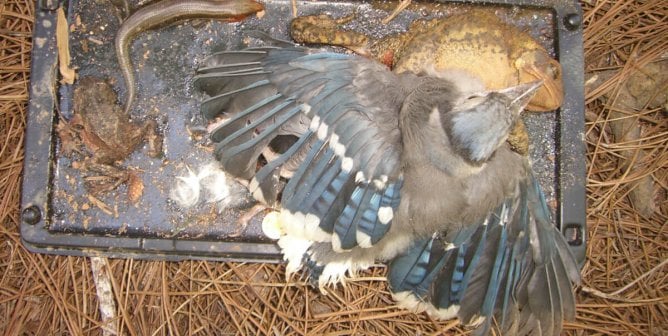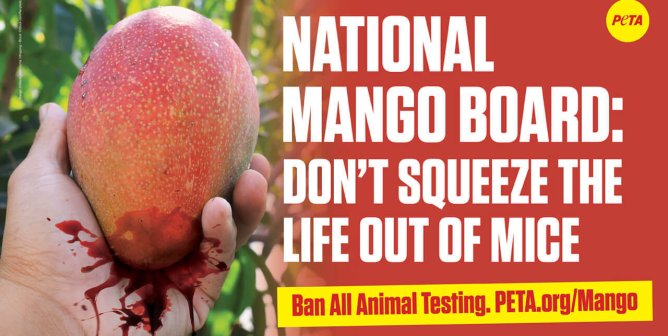The Angora Industry
Angora wool, used in everything from sweaters to mittens and hats, comes from angora rabbits who have extremely soft, thick coats. A PETA Asia undercover investigator visited almost a dozen rabbit farms in China, the source of 90 percent of the world’s angora, and found rabbits screaming in pain and terror as workers ripped the fur out of their skin. Following this barbaric ordeal, which the rabbits endure every three months, the animals lie motionless inside tiny, filthy cages, stunned and in shock. Some seem unable to move.
Rabbits who are sheared have their feet tightly tethered, and they are suspended in the air or stretched across boards. The sharp cutting tools inevitably wound them as they struggle desperately to escape. Because rabbits are prey animals, they become terrified very easily and fear being picked up, and they are prone to heart attacks in stressful situations. One farmer told PETA Asia’s investigator that 60 percent of the rabbits die after only one to two years.
There are no penalties for abuse of animals on farms in China and no standards to regulate the treatment of the animals.
In the wild, rabbits live in elaborate underground warrens, but on a typical angora farm, they are housed alone in wire-mesh cages not much bigger than their own bodies, which causes these highly social animals to slowly go insane. The wire cages offer little protection from the elements, so the rabbits have no way to keep themselves warm after they have been plucked bald. When forced to live on wire flooring, rabbits’ tender feet become raw, ulcerated, and inflamed from constantly rubbing against the wire.
Rabbits are naturally clean animals, but on angora farms they must live surrounded by their own waste. The stench of ammonia from the urine-soaked floors beneath the cages can cause their eyes to become irritated and infected. These animals never have a chance to dig, jump, or run as they would in the wild, where they can roam an area of up to one square mile a day.
Female rabbits produce more wool than do males, so on larger farms, male rabbits who are not destined to be breeders are killed at birth. They could be considered the “lucky” ones.
Angora rabbits are first sheared or plucked when they are just 8 weeks old, and they are subjected to the same terrifying ordeal every few months following that. After two to five years, rabbits who have survived this repeated abuse are hung upside down, their throats are slit, and their bodies are sold for meat.
If you don’t want to support the exploitative angora trade, please always choose animal-free fashions. Following PETA Asia’s investigation, dozens of retailers have banned angora, including Calvin Klein, Tommy Hilfiger, H&M, Forever 21, Eddie Bauer, L Brands, QVC, Lands’ End, Express, Pac Sun, Mango, numerous UK-based retailers including Topshop, ASOS, Marks & Spencer, New Look, as well as many other European, Australian, and Asian companies.
